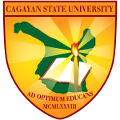Course Description
This course delves into the significance of research and statistics in educational parlance. It comprehensively captures the research methods and scientific procedures for identifying problems, issues, and gaps in the educational setting. The course aims to develop and improve the proficiency of graduate school students as educational researchers and managers in their field of specialization, particularly in the preparation of research proposal which is relevant and responsive to the thrusts of the Basic Education Research Agenda (BERA), National Higher Education Research Agenda (NHERA), Harmonized National R&D Agenda (HNRDA) 2022-2028, NCCA Research Agenda and other research priorities geared towards educational development of the Philippine society and the world.
Course Goals
The long-term aim of this course is to develop and improve the proficiency of graduate school students as educational researchers and managers in their field of specialization. It specifically aims to:
1. To foster intellectual and scholarly avenues for graduate school students focusing on proposing solutions and initiatives to address the problems, issues, and gaps in education at the local and national levels through research;
2. To create an avenue for graduate school students to internalize and appreciate educational research with emphasis on research problem conceptualization, methodology and statistical designs and analysis, and research proposal development.
3. To nurture critical thinking, awareness, and values in the preparation and conduct of research.
Course Learning Objectives/ Outcomes
At the end of the course, the graduate school students should have:
1. Developed a positive attitude toward conducting research in the educational setting.
2. Enumerated the qualities (hard skills and soft skills) of a good educational researcher;
3. Identified appropriate research methods (quantitative, qualitative, mixed methods) in preparing their proposal.
4. Determined the roles and functions of theses/dissertation advising.
5. Developed a synthesis paper of educational research topics that are publishable as the basis for a research gap;
6. Explored potential strategies for partnership and collaboration for research outputs utilization by establishing advocacy mechanisms;
7. Applied the standards of a quality research proposal;
8. Defined the ethical parameters in designing the research methods;
9. Applied statistical procedures and analysis utilizing technology-based tools;
10. Acquired skills in peer reviewing research outputs;
11. Produced a high-quality educational research proposal as the main requirement in the course;
Course Requirements
This course will require you the following:
1. Attendance (100%) (F2F/ Online)
2. Prompt submission of learning tasks and accomplishments
3. Active participation in class discussion
4. Oral and written reports on assigned topics
5. Major examinations equivalent to:
ü Theses/ Dissertation Proposal (Chapters 1-3, References, Appendices, CSU Template)
ü Oral research proposal presentation (online)
ü Written exams and comprehensives
6. Software: SPSS Version 26, Minitab Software Ver 21.2,
Course Content and Structure
This course is designed to provide you with general to specific concepts, principles, and theories employing the collaborative and constructivist approach to the teaching-learning process. Anchored by the learning outcomes and objectives, the course is divided into five (5) modules with corresponding learning objectives. For this semester, 2022-2023, the course is expected to be finished within the first semester with 3.5 months and 14 weeks.
The first module focuses on the Basic Concepts of Research and Research Management and Mentoring. This part introduces you to the overview of research as a science, its values to man, community, and the world, the qualities and attributes of an educational researcher as a manager, and the discussion on the educational research priorities and agenda. This module will give you a workable knowledge of your roles as researchers in academia.
The Problems and Gaps Identification as Starting Point of Research are discussed as the component of the second module for you to establish a firm grounding of your inquiry problem. This module will help you identify possible research collaborators and partners supporting your research advocacy and interest. You will explain the types of research gaps and problems and conduct a research gap analysis by drafting a research review article which is a prelude to your research problem formulation.
As an educational researcher, you are expected to design a research proposal with a scientifically accepted and sound research methodology. Educational Research Methodology is Module 3 of this course that will orient you on using quantitative, qualitative, mixed-methods, and Community Participatory Action Research as research designs. It will help you identify the proper sampling procedure and develop valid and reliable research instrumentation and ethical collection methods before and after the conduct of the study and its research implementation plan and budget.
The fourth module, educational statistics, will provide you with knowledge and skills on the role of statistics in education and the trends and issues in quantitative research. This also covers statistical sampling techniques for quantitative design and qualitative sampling techniques. This will also walk you through using online and statistical software and parametric and non-parametric statistics to test equality and proportions, relationship, and multivariate causal relationships.
The fifth module, The Research Proposal Format and its Quality Assurance, will orient you on the structure of the CSU Thesis/ Dissertation template, the proper citation using the APA 7th Edition, the anatomy of a publishable research article, an overview of Scopus and Clarivate Research Journal Publication and the use of quality technology-based tools in packaging a research article for publication.
